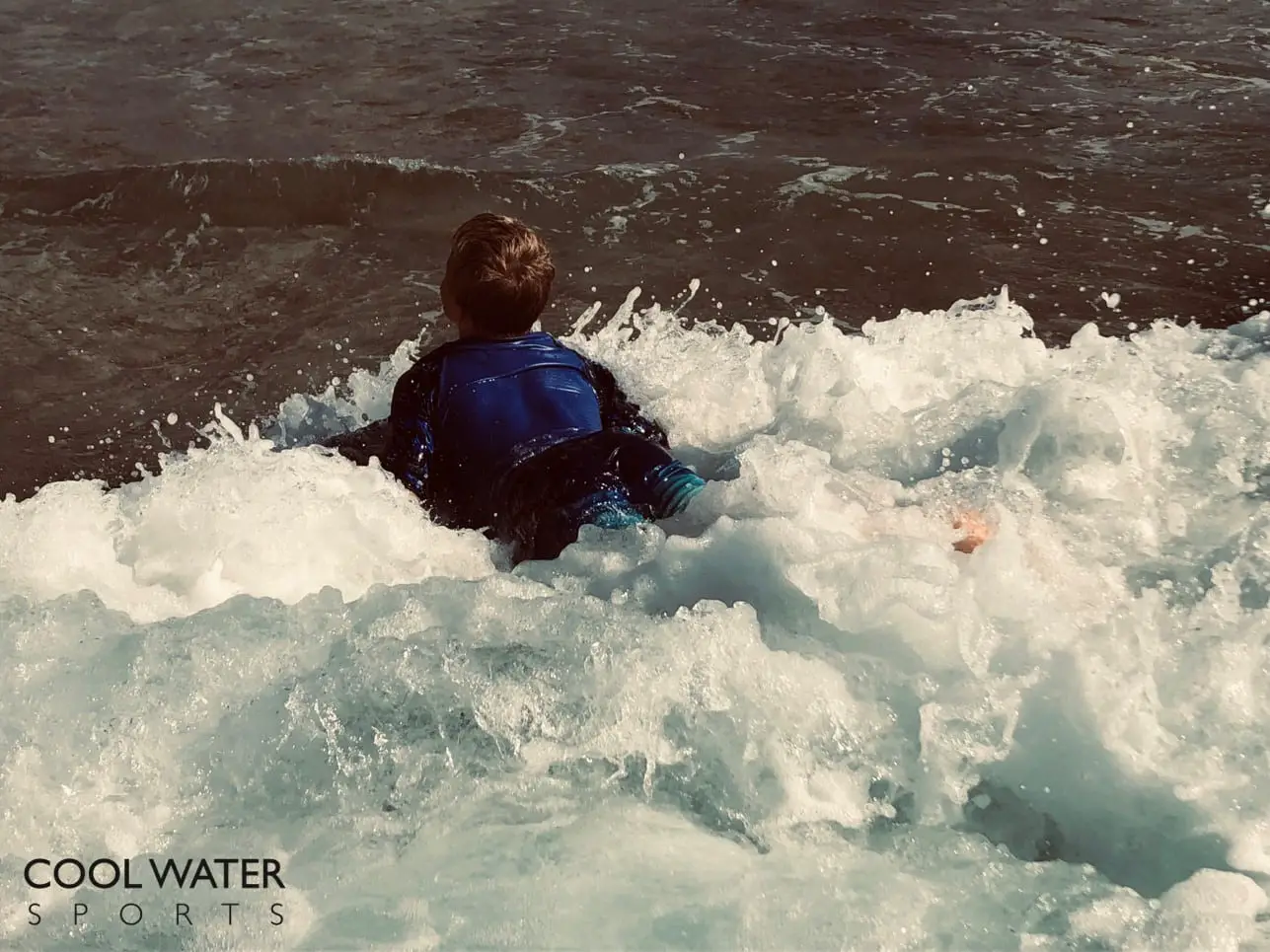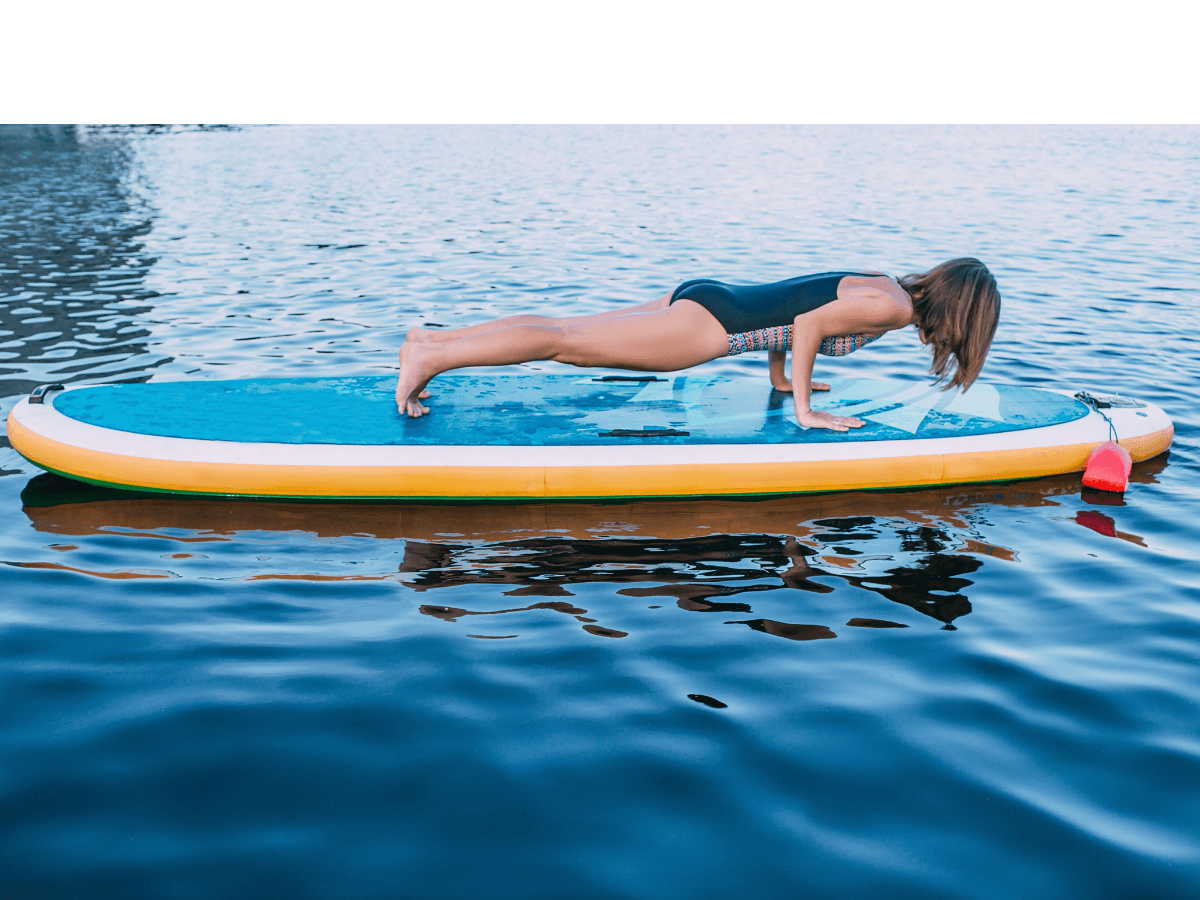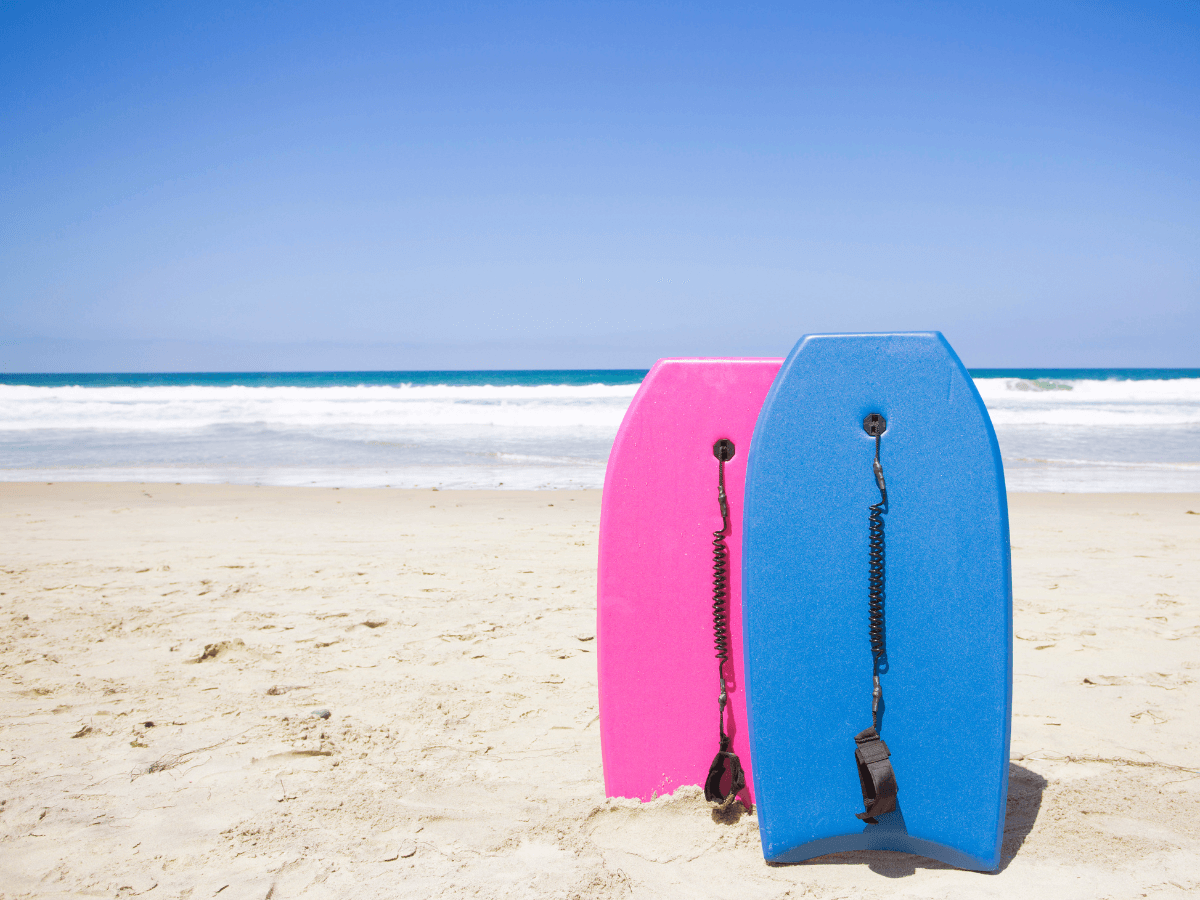Bodyboarding is an exciting activity for kids of all ages and is becoming increasingly popular due to the numerous benefits it offers. In this article, we will explore the physical, mental, and social benefits of bodyboarding for kids. We will also look at how bodyboarding can help kids overcome challenges, and how they can get started on their bodyboarding journey.
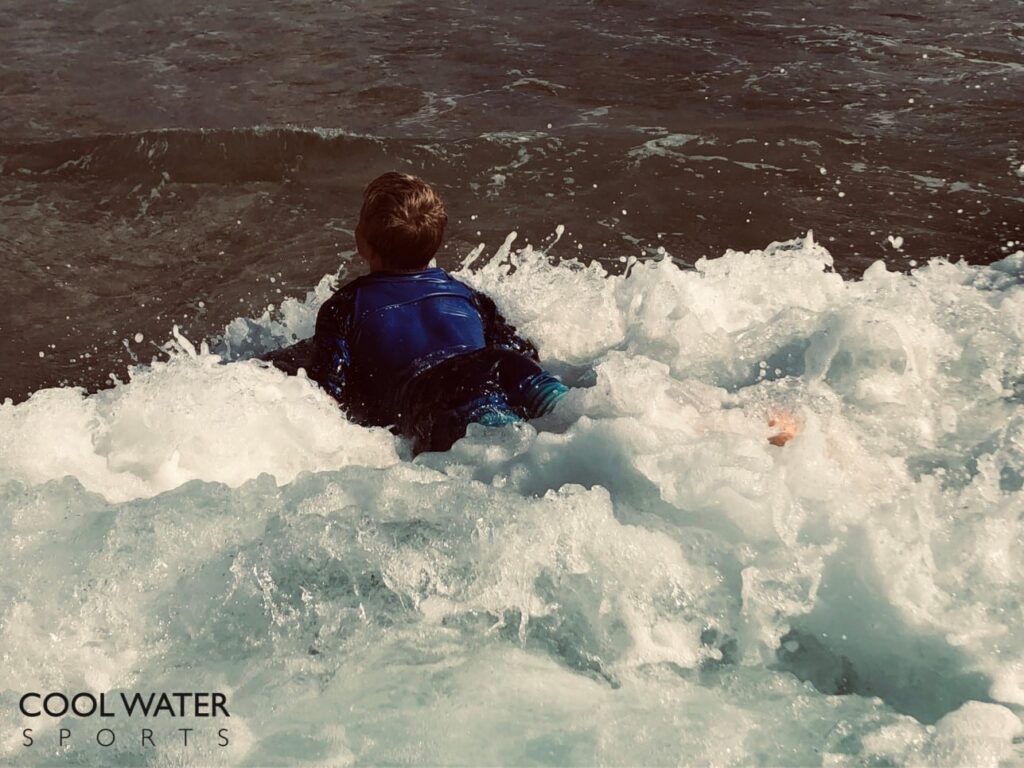
Physical Benefits of Bodyboarding
Bodyboarding offers a range of physical benefits that make it an ideal activity for kids. One of the main benefits is that bodyboarding is a full-body workout that strengthens the arms, legs, and core muscles without putting strain on the joints. It also helps to improve balance and coordination.
So you see, bodyboarding trains the complete physique and also promotes coordination skills without causing an unhealthy strain on the body, even if it is still growing.
Another great advantage of bodyboarding is that it is very easy to learn and extremely fun even for beginners. So it is a simple and fun way to develop the movement level of children.
And, as we know, nowadays with all the other activities like gaming, YouTube, or other digital distractions, this is something that unfortunately often gets short shrift.
In this article, you’ll find a detailed explanation of why Bodyboarding is a good exercise.
Mental Benefits of Bodyboarding for Kids
Bodyboarding offers a range of mental benefits for children, just as it does physical ones. Being in the water can be incredibly calming, which can help kids to destress and feel more relaxed. It can also help to increase their self-esteem and confidence.
Learning success and confidence
Learning a new skill can be daunting, and bodyboarding is no exception. But with practice and persistence, kids can build on their skills and gain a sense of accomplishment. This can help them to develop a sense of achievement and pride in their abilities.
And as mentioned above, bodyboarding is much easier to learn, especially compared to surfing or windsurfing. If you follow our tips on how to learn Bodyboarding for Kids, it is definitely a super activity to boost self-confidence.
Experience nature and get to know the sea
Bodyboarding can also help to build confidence in the water. It’s a great way to introduce kids to the sea in a safe and enjoyable way. If kids struggle with fear of the sea or water, bodyboarding can help them develop their confidence and comfort levels in the water. It also helps to build strength and skills, so kids can become more independent, and safe, in the water.
Decision making
Bodyboarding also provides kids with an opportunity to develop their decision-making skills. It requires them to think quickly, read the waves, and make immediate decisions. This helps to develop problem-solving skills and build confidence in decision-making. It also teaches kids the importance of taking calculated risks. And hey, isn’t this one of the most important skills in life?
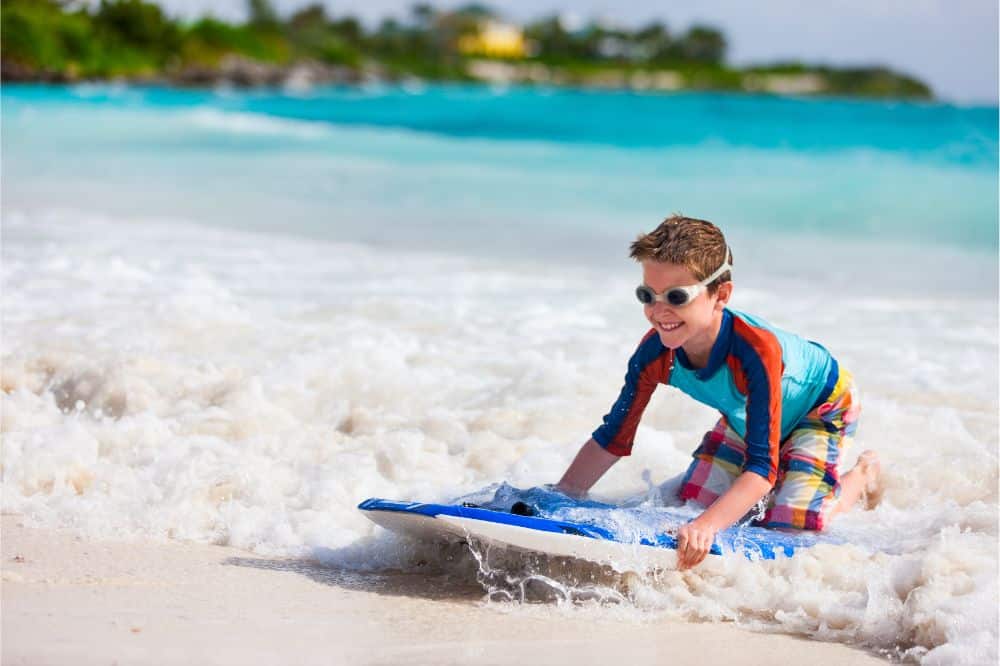
Social Benefits of Bodyboarding for Kids
Bodyboarding is not only a great physical activity for kids, but it also provides a number of social benefits.
Community
Learning to bodyboard and participating in this sport gives children the opportunity to take part in a local bodyboarding community. This helps to build relationships with others who share a common interest and can even provide a sense of belonging that can help build self-confidence and self-esteem. And hey, learning to interact with others and make friends can help instill social skills that can benefit life.
And even if they don’t participate in a local community, there’s a sense of belonging among all surfers. From my point of view, it’s definitely positive when kids feel they belong to a sports community and also spend some of their digital time with a sport. Certainly better than following certain other trends…
Decision making
Learning to bodyboard also provides an opportunity for kids to learn important social skills such as communication, problem-solving, and teamwork. These skills can help children build strong relationships with peers and adults and can be beneficial in many areas of their lives.
In addition, children must learn to make quick decisions in the water. Do I take the wave or not? Is this the right wave? Can I get a little braver?
All these little decisions have to be made when bodyboarding. And often, especially at the beginning, you feel a little insecure about it.
But isn’t making decisions under uncertainty one of the most important skills that everyone has to learn when growing up? We think so…
And here it is clearly beneficial, when kids can learn and train this skill with a sport like bodyboarding.
Stress reduction and serenity
In bodyboarding, you can’t control or alter every situation. Nature and the sea set the tone.
Bodyboarding, and by extension all outdoor sports, teaches kids an important lesson. Focus on the aspects you can change and accept circumstances you can’t influence! Or in short, control the controllable!
It’s amazing how quickly kids learn this and how much it helps them in their daily lives. Together with the community feeling and the gained self-confidence, the children gain a positive serenity. This benefits them at school, in their interactions with colleagues, and even with their parents.
Overcoming Challenges in Bodyboarding
Bodyboarding can be an intimidating sport for kids to try, especially when it comes to conquering their fear of the sea or their lack of confidence. It is important to remember that bodyboarding is a journey and that it may take some time for the child to develop their skills and confidence. We as parents should focus on providing a supportive environment, so that the child feels empowered to try, fail and try again. Again, this is a hugely valuable lesson for life.
How to Get Started with Bodyboarding
Starting bodyboarding can be intimidating, but there are several things you can do to help your child get comfortable with the activity.
First start by selecting a suitable beach. Ideally, there is an area with shallow water and some gentle waves which run over a longer distance.
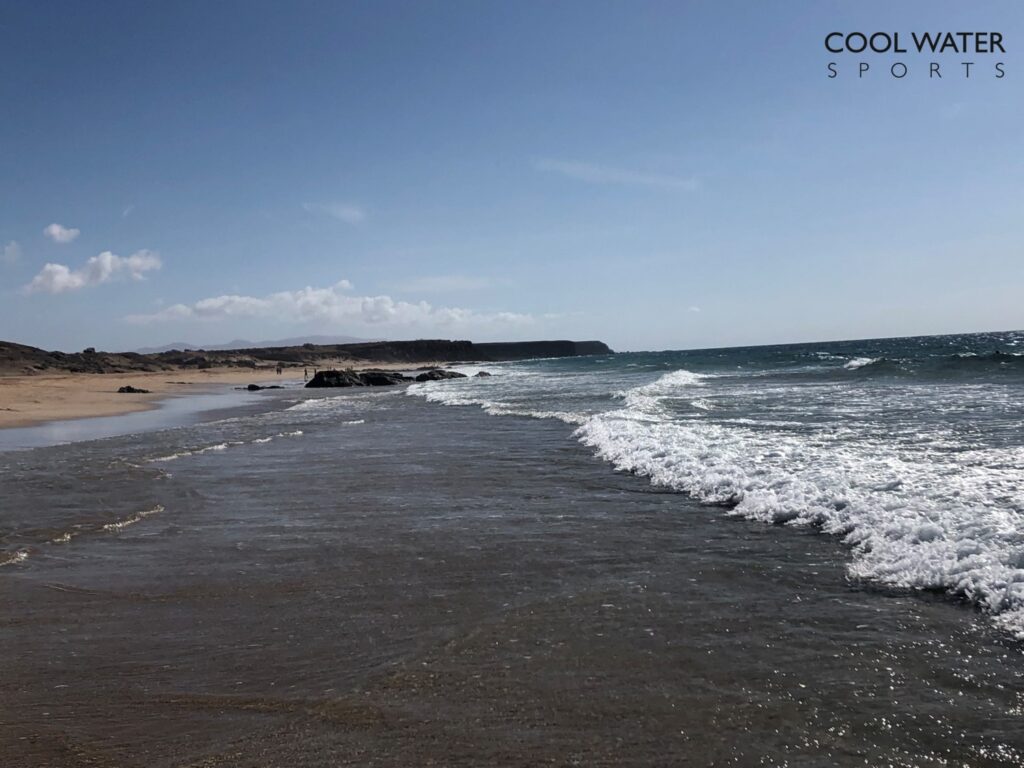
Phase 1:
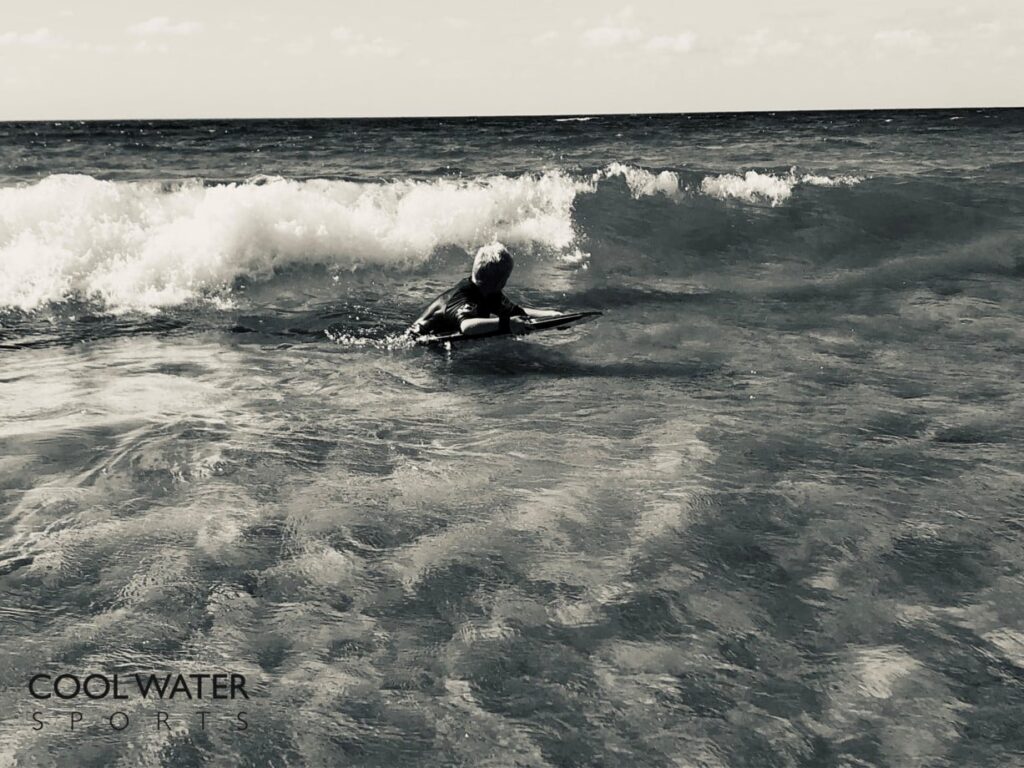
Start by introducing the child to shallow water, where the waves have already broken.
The water in this area should be hip-deep or chest-deep at maximum for the child. Have them lay on their stomach on the bodyboard and have them hold onto the front of the board with both hands.
As an adult, you can hold onto their legs and help propel them forward when a wave comes. This will help them learn the timing of when to use propulsion to get onto a wave and give them a sense of achievement when they experience the incredible feeling of surfing.
Phase 2:
After a few successful rides, move the child into the waves themselves. Begin in shallow water so they don’t have to paddle to reach a wave and can instead “jump” into the wave. This will help them with their timing and learning how to enter correctly, which can be the most difficult part when it comes to bodyboarding in deeper water and higher waves.
Phase 3:
Once they feel comfortable on the board in shallow water, start to move into the area where the waves have yet to break. This will mean the water becomes deeper and the “standing area” is left. It is important to have an adult accompany them in this area, so they can help as quickly as possible. Having an adult bodyboard or surfboard can help focus on the child and help when needed. Depending on their swimming ability, they should also wear a thin life jacket or a wetsuit to provide buoyancy.
At this stage, it is important to help the child find the right timing for entry and develop enough propulsion. If they have advanced enough, it may be beneficial to purchase suitable fins.
Finally, it’s important to remember that your child will learn at their own pace. Therefore, it’s important to provide a supportive and encouraging environment while they gain skills and confidence in the water. With patience and practice, your child will soon be able to enjoy the many physical, mental, and social benefits of bodyboarding.
Conclusion
Bodyboarding is a great activity for children of all ages and can help them develop their confidence and self-esteem, reduce stress, and become part of a local bodyboarding community. It is relatively easy to learn, you can start with it at all ages, and makes a lot of fun at all skill levels.
The physical, mental, and social benefits of bodyboarding for kids, as well as the challenge of conquering the fear of the sea, make it a great activity for kids to take part in. With the right equipment, guidance, and practice, bodyboarding can help children to develop and grow. Whether you’re looking to help your child develop confidence, reduce stress or join a local bodyboarding community, bodyboarding is an excellent choice for kids.

